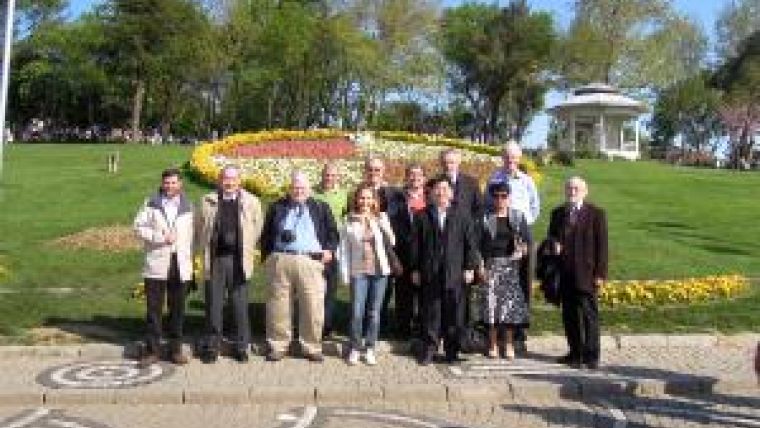A Term is Ending (2008-2012)
As president of ISPRS, during the closing ceremony at the Beijing Congress in 2008, I said that ISPRS should prioritise environmental monitoring and sustainable development. Looking back over the term 2008-2012, we have established several Working Groups on Environmental issues, with some good results. We have achieved the other priorities set at the beginning of my term too. These priorities, outlined in the preamble of the Society’s Strategic Plan which was approved at the centenary celebrations in Vienna, included
“To advance the photogrammetry, remote sensing and spatial information sciences through international co-operation in research, development and education for the benefit of society and for environmental sustainability.”
There are countless examples of the ISPRS’s commitment to international co-operation. We work closely with members of the Joint Board of Spatial Information Societies (JBGIS), the ICSU GeoUnions, UNOOSA, COPUOS, GEO and the UN initiative on Global Geospatial Information Management (GGIM). We have established especially close contacts with ICA, IAA, URSI and IUGG among others; this is reflected in the Scientific Program of the Melbourne Congress. Within the ICSU GeoUnions, we work closely with related organisations on common projects and have already completed two high-class ICSU-sponsored projects. Within GEO,
we worked in different bodies and contributed to the Strategic Plan.
We are a very active Society in UNOOSA and COPUOS, and we have finished a joint project together with UNOOSA and JBGIS, publishing the Best Practices Booklet On Disaster and Risk Management. Another common project is in progress to produce a publication on ‘The Value of Geo-Information’ for Disaster and Risk Management (VALID). Together with UNOOSA, ISPRS organises a conference series on ‘Applications of Socio-Economic Benefits’. ISPRS also co-operates with the UN initiative on Geospatial Information Management (GGIM) office to survey the current status of mapping and map-updating in the world. We have organised several capacity-building workshops in Africa in collaboration with IEEE, UNECA and the US Department of State. We are planning more workshops with ICA. In South America, we worked with SAF, the photogrammetric service in Chile, to organise LARS, the Latin American Remote Sensing conference.
Last year, having been nominated by the Geo-Union cluster of ICSU, I was elected to the Executive Board of the International Council for Science (ICSU) at its 30th General Assembly held on 30 September 2011 in Rome. This marked a major step, since it is the first time that an ISPRS officer has been elected as
a member of ICSU Executive Board.
ISPRS has become one of the leading international institutions in geospatial sciences. We have achieved this due to the continued involvement of many people in different regions of the world. On behalf of the ISPRS, I want to thank them all for their ongoing support.
I hope that they will continue to participate in all ISPRS activities as before. At the end of my term, it just remains for me to say that we were a good team at the ISPRS Council together with the Technical Commission Presidents, and I am sure this will also be apparent at the Congress.

Value staying current with geomatics?
Stay on the map with our expertly curated newsletters.
We provide educational insights, industry updates, and inspiring stories to help you learn, grow, and reach your full potential in your field. Don't miss out - subscribe today and ensure you're always informed, educated, and inspired.
Choose your newsletter(s)
























